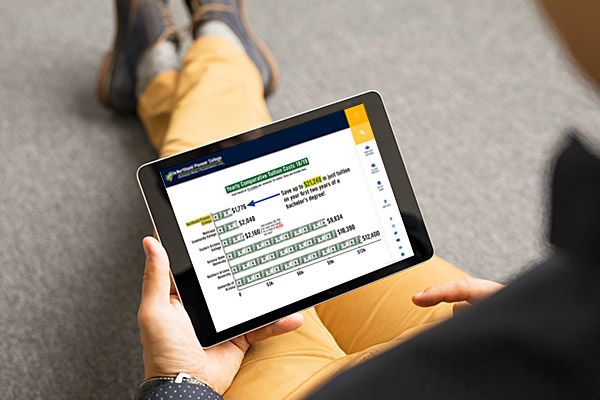Employees of Northland Pioneer College are encouraged to access one of three alternatives for grievance resolution. The first is to take responsibility in addressing issue(s) with concerned party/parties. The second is to informally grieve a matter of concern through the mediation resources of the Ombuds Service Committee. The third is by formal act through Northland Pioneer College Grievance Procedure 2760.The Ombuds Service is not an appropriate service for disputes involving matters covered by College Procedure 2755 Due Process: Dismissal or suspension without pay for more than ten days.
Mediation by the Ombuds Service Committee may be requested by an employee who is seeking informal assistance in the resolution of a dispute at the department or division level after determining resolution is unattainable and/or the dispute has not been settled.
The College Ombuds Service Committee is composed of the elected CASO delegate, the Faculty Association President and an Administrative representative appointed by the President and that appointee serves as Chairman. Tenure of the three committee members is one year in length and may be renewed.
Mission of the Ombuds Service is to assist in the promotion of fair and equitable treatment for all staff and faculty at Northland Pioneer College.
The Ombuds Service provides for:
- dispute resolution;
- non-adversarial, non-litigious problem solving; and
- the authority to look into matters informally and to make recommendations.
The Ombuds Service does not:
- have authority to make or reverse College-sponsored decisions;
- advocate for one party over another; and
- determine right or wrong.
The purpose of the Ombuds Service is to:
- provide a prompt, impartial, and confidential means of facilitating dialogue between parties; and
- provide for discussion, apart from formal grievance procedures, in resolving differences.
The Ombuds Service can be of assistance by:
- helping to resolve problems and conflicts that are not addressed through other College procedures;
- providing informal services outside the usual review and/or appeal procedures;
- being independent and impartial, and assuming a neutral role when hearing a problem or complaint; and
- being accessible to all college employees.
The Ombuds Service is dedicated to providing confidential services and will maintain strict confidentiality concerning matters that are brought to the office to the fullest extent permitted by law unless written permission is otherwise granted. Confidentiality will be broken should there be threat of physical harm.
Matters discussed with the Ombuds Service Committee are informal and off-the-record. Seeking Ombuds Service and participating in discussions does not constitute formal notice or fulfill any requirements for making a timely complaint to Northland Pioneer College. To the fullest extent permitted by law, any notes concerning discussed matters will not be released to anyone and are not kept beyond the time the Ombuds Service is actively working on an issue.
Mediation Procedures
If an employee elects to use the mediation services of the Ombuds Service Committee, they shall file a request for mediation services with the Ombuds Service Committee within 20 working days of the occurrence prompting the dispute. The request for mediation services must include the following information:
- the names, email address, and office telephone numbers of the disputing parties;
- the date the dispute arose;
- the department, or division involved;
- a brief statement setting forth the issues in dispute ; and
- the remedy desired.
When the Ombuds Service Committee chairman receives a request for mediation services, it is forwarded, along with a set of guidelines, to the person with whom the employee has a dispute (the respondent). The respondent(s) shall have 15 working days to submit a written response to the Ombuds Service Committee.
The respondent's response must contain:
- the name, email address, and office telephone number of the respondent; and
- a brief statement of the respondent's position.
After receiving written statements from the disputing parties, the Ombuds Service Committee shall have 15 working days in which to assist in resolving the conflict to the mutual satisfaction of the parties involved. The Ombuds Service Committee may terminate mediation if:
- there has been a meeting with each party at least once; and
- it is determined by the Committee that the matter cannot be successfully mediated.
- there is threat or danger of physical harm; or
- a mutually satisfactory resolution results.
The Ombuds Service Committee will coordinate meetings and/or the exchange of correspondence between the disputing parties. The Ombuds Service Committee shall establish the time, date, and place of each meeting, giving at least 48 hours notice. The Ombuds Service Committee also may meet with each party individually. All mediation meetings shall be held in closed session and shall be confidential.
The mediation process culminates in a written report prepared by the Ombuds Service Committee and sent to the parties within 15 working days after the mediation process has ended. The report shall contain the following:
- the names of the disputing parties;
- the length of time mediation was attempted;
- the outcome of the mediation process;
- notice that the complainant, if dissatisfied with the result of the mediation process after receiving the Ombuds Service Committee report, may have a right to begin the formal grievance process; and
- the name(s) of the individual with whom a formal grievance should be filed if the complainant chooses to file a formal grievance.





